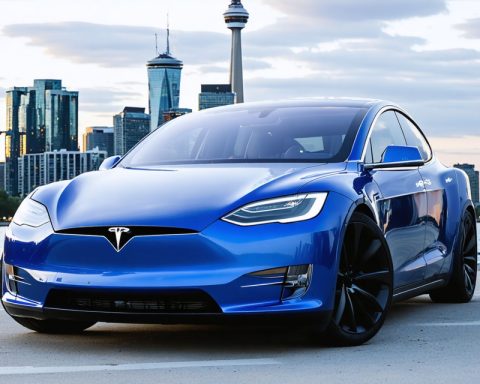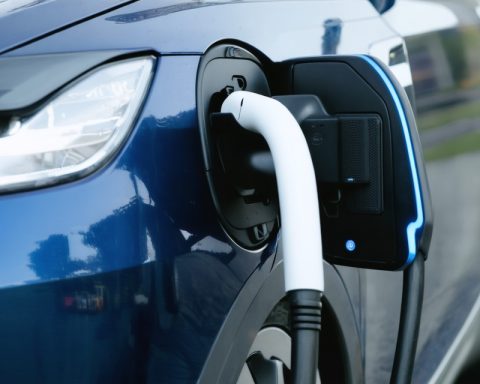- China and the EU are rekindling trade and investment relations, focusing on electric vehicle (EV) anti-subsidy commitments.
- This renewed engagement aims to align strategic interests, offering new investment opportunities and fostering industrial collaborations in the EV sector.
- China and the EU prioritize sustainable solutions and technological co-leadership, reflecting a shared vision of mobility and environmental responsibility.
- Diplomatic progress addresses trade imbalances and protectionist barriers, aiming for cooperative engagement to achieve net-zero carbon goals.
- For consumers, the collaboration promises advanced technology, reduced costs, and increased accessibility to electric vehicles.
- Businesses and entrepreneurs can anticipate a new era of opportunities for innovation and forward-thinking enterprise resulting from this partnership.
- This initiative in international relations highlights a defining partnership for the next decade, driven by collaboration and green progress.
A glimmer of diplomatic momentum shone through the usual daily hustle at the Ministry of Commerce in Beijing today, as both China and the European Union took a crucial step toward rekindling their trade relations and investment synergy. In an era where electric vehicles (EVs) are the future, both powerhouses have recognized an imperative need to renew discussions over electric vehicle anti-subsidy commitments.
The clouds of economic tension have long gathered over this issue, threatening to shadow the shared interests of these two influential trade giants. Yet today, a potential silver lining has emerged. As the global EV market edges toward a new golden age, with consumer interest surging and technology accelerating at breakneck speed, the stakes for strategic alignment between China and the EU have never been higher.
Bold commitments could pave the way for lucrative investment opportunities and innovative industrial collaborations, propelling the EV sector into uncharted territories of growth. The urgency cannot be overstated—both regions stand to gain economically and environmentally as they vigorously pursue net-zero carbon ambitions.
Today’s announcement serves as more than just procedural rhetoric. It’s a dynamic call to action for both markets to align interests and harmonize subsidies, bypassing protectionist barriers that often hamper international cooperation. By swiftly resuming negotiations, China and the EU signal a shared vision of sustainable mobility and technological co-leadership on the world stage.
Tensions over trade imbalances in the EV sector have often frayed diplomatic ties, but the decision to come back to the negotiating table reflects a broader understanding: sustainable solutions require cooperative engagement. This potential new chapter in EV trade is not just a bilateral matter, but a critical blueprint for global economic stewardship and environmental responsibility.
The takeaway resonates beyond mere diplomatic circles. As consumers increasingly pivot toward sustainable options, the collaboration opens the door to advanced technology, driving down costs and increasing accessibility to electric vehicles. For businesses and entrepreneurs, this renewed engagement could herald a new era ripe with opportunities for innovation and forward-thinking enterprise.
In the tapestry of international relations, today woven from the threads of diplomacy and mutual benefit, we witness the beginning of what might be a defining partnership for the next decade. It becomes evident that, beyond vehicles, China and the EU are navigating towards a future fueled by collaboration, innovation, and greener progress.
Unveiling a New Era: Will China and the EU’s Electric Vehicle Alliance Transform the Global Market?
Diplomatic Breakthrough in EV Trade
Both China and the European Union (EU) have made a critical move towards revitalizing their trade and investment alliance around electric vehicles (EVs). The urgency stems from shared environmental goals and the economic potential of the rapidly expanding EV market. As global leaders in trade and technology, their collaboration could dramatically reshape the EV landscape.
Key Questions and Expert Insights
What Led to the Need for Renewed Negotiations?
Trade tensions have often hampered China-EU relations, primarily due to disagreements over subsidies and market access in the EV sector. The recent decision to reassess commitments and address these imbalances highlights a mutual recognition of the need for cohesive strategies to meet burgeoning global demands and achieve carbon neutrality.
Why Is This Alliance Important Now?
With consumer demand for sustainable transport solutions skyrocketing, technological advancements in the EV industry are accelerating. According to a market forecast by Deloitte, the global EV market is expected to grow at a compound annual growth rate (CAGR) of 29% by 2030. Harmonizing policies and commitments between two of the largest markets could significantly drive innovation and economic growth.
How Will This Affect Consumers and Businesses?
– Consumer Impact: Reduced production costs through collaborative efforts can lead to more affordable electric vehicles. This can make EVs more accessible to a broader market, aligning with growing environmental consciousness.
– Business Opportunities: Companies operating in renewable energy and automotive sectors could capitalize on new partnerships and investments, leading to potential technological breakthroughs and new business models.
Industry Trends and Predictions
– Technological Co-Leadership: China and the EU could set global standards in EV innovation, influencing global policies and pushing forward advancements in areas like battery technology and charging infrastructure.
– Investment Trends: Increased cross-border investment could facilitate the growth of smart grid technologies and enhance the production of critical EV components such as lithium-ion batteries.
What Are the Potential Challenges?
Despite positive momentum, obstacles remain. Protectionism and regulatory hurdles could slow the pace of collaboration. Balancing regional interests with cooperative objectives will be a tightrope walk requiring diplomatic finesse.
Actionable Recommendations
1. For Policymakers: Establish transparent frameworks to facilitate easy transfer of technology and secure intellectual property rights across borders.
2. For Investors: Focus on emerging technologies within the EV supply chain, such as energy storage solutions and recycling techniques for EV batteries.
3. For Entrepreneurs: Explore innovative business models that leverage the increased demand for EV-related technology, like subscription-based models for charging infrastructure.
Conclusion: A Path Forward
The cooperation between China and the EU in the EV sector is more than a strategic alliance; it marks a pivotal shift in global economic practices towards sustainable and inclusive growth. As both regions work towards integrated solutions to climate challenges, they lay the foundation for a robust market future. With these insights, stakeholders across sectors can better position themselves for success in the evolving energy landscape.
Relevant Links for Further Reading













